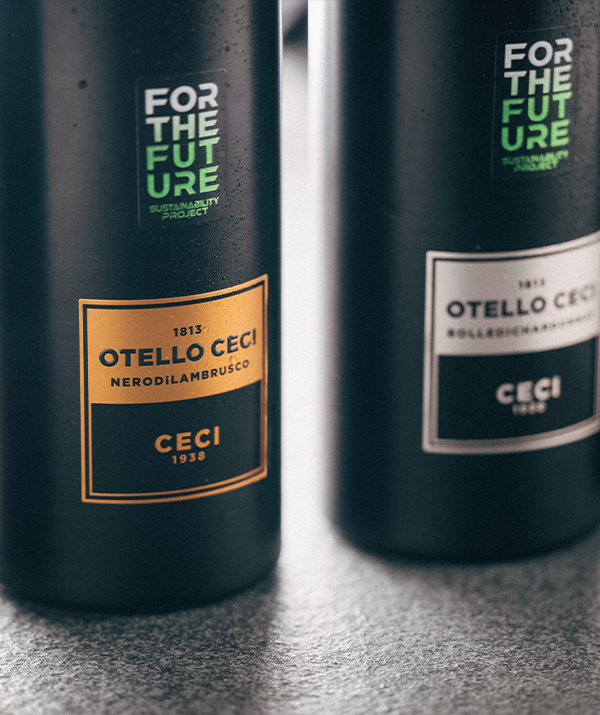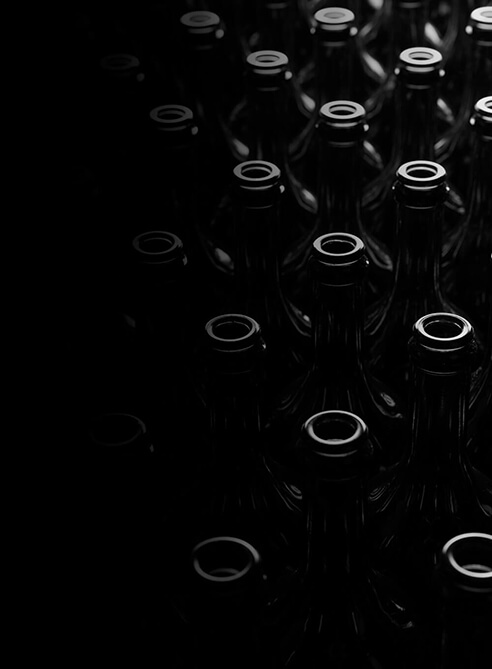Home » for-the-future
“We firmly believe that the growth of our company must also be guided by a vision of responsibility, which considers our planet’s well-being. With this in mind, we adopted more sustainable business practices to reduce our environmental impact over time, and we look forward with trust, recognizing that any efforts in this direction can play an important role for future generations.”

For The Future Sustainability Project
“For The Future” is Cantine Ceci’s innovative Sustainability Project that combines a passion for quality winemaking with a real commitment to sustainable production.
Towards ISO 14001
For over a year now we have decided to pay even greater attention to the impact of our work on the environment, by going on a path that will lead us to obtain ISO 14001 certification ” for our Environmental Management System”.
Cantine Ceci S.p.A. started this project to demonstrate, in both local and global languages, that the organization’s true dedication to protecting the environment and the region in which it was founded remains firmly established.

Cantine Ceci S.p.A. intends to decrease the impact of its processing and supplier chain on the area by supporting extensive and ongoing monitoring of its environmental performance and by closely adhering to legal requirements.
For a winery, the most sensitive issue is how best to use its resources, which translates into taking practical steps to monitor and control consumption, waste, production residues, and waste generated during a product’s life cycle.
Water is heavily used in wineries for all cleaning and sanitizing purposes. The initial internal step was to concentrate on quantifying water consumption—both from the network and from wells. The first step was to install detection systems, either manual or automatic meters, in the various winery areas and analyze the amount of water used in the actual “balance” of wine production to determine where, in which phases, processes, operations, and times of the year, the highest consumption is concentrated.
Measuring and cross-sectioning the various departments to identify the most energy-intensive ones so that action can be taken on the most important ones was done using the same methodology on the electricity and methane gas lines.
SOME NUMBERS
From an energy perspective, a photovoltaic system helps us generate one-third of our electricity. We have also installed a charging station for electric cars, available to our customers and employees.
Since packaging contributes more than 30% of the environmental impact of the finished product life cycle, it is another especially important component of our processing cycle.
Keep in mind that Italian consumers are becoming more and more concerned with environmental issues when making food purchases. In the past year, 54% of our citizens switched to a brand with more environmentally friendly packaging, and 18% stopped purchasing a product because of its unsustainable packaging,
according to comments of Emanuele Di Faustino, Nomisma’s director of Industry, Retail, and Services.

OUR IMMEDIATE GOALS FOR A SUSTAINABLE FUTURE:
REDUCE WATER, ELECTRICITY, AND GAS CONSUMPTION
After monitoring the most critical points
REDUCE
WASTE
INSTALL A NEW PHOTOVOLTAIC SYSTEM
To achieve nearly 100% energy efficiency
ADOPTING A PACK WITH GREAT QUALITIES FOR SUSTAINABILITY
ALU Bottle For The Future
This is the firm commitment for the next 3 years that will enable us to achieve Certification of our Environmental Management System according to the international standard ISO 14001 and other extraordinary achievements.






